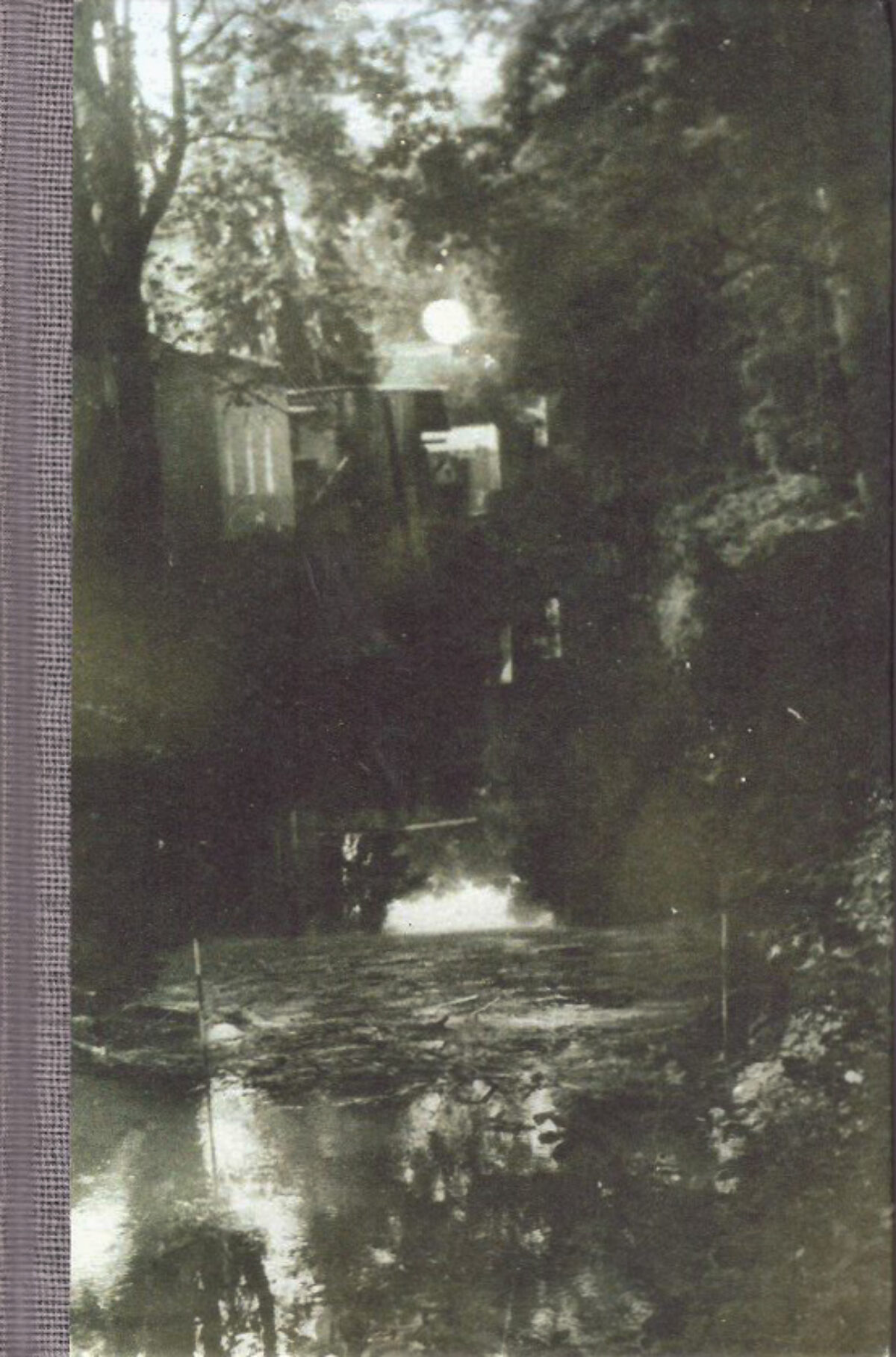Miroslav Tichý
A dramatic portrait of a bearded and hirsute Miroslav Tichy, wearing what looks like a hair shirt, gives him the grave and sombre bearing of a renegade monk or prophet. In more recent photographs he comes across as vulnerable and old, struggling to come to terms with a world that has treated him cruelly and caused him serious psychic wounds. Similarly, there are two sides to his artistic practice: while there is a kind of bravado in the overt sexuality of many of his images, it is difficult not to be somewhat saddened by the abject and snatched photographs of women taken across the fences of public swimming baths in a Czech provincial town.
It may be impossible to consider Tichy’s work without bearing in mind the story of his life, which has been strikingly harsh. Refusing to bow to the inflexible social expectations of the communist regime in Czechoslovakia in the 1950s, the voung Tichy, then a painter, frequently found himself in trouble. Occasionally beaten, and from time to time detained in prison and a mental hospital, Tichy eventually was excluded from conventional society, living like a pauper and wandering around the outskirts of his native Kviov. ‘Mending’ broken cameras with lavatory paper rolls and plastic lenses taken from children’s toys and glasses, he began to follow women and young girls, photographing them incessantly. His own odd appearance, and that of his bizarre cameras, ensured that many of his subjects thought he was a madman and that the cameras probably didn’t work. Others were irritated, while some benignly tolerated his eccentricity. The resulting images, casually printed, frequently altered with a pencil or paints, were usually discarded, tossed on the floor of his dishevelled house, and then forgotten.
Many of Tichy’s images are simultaneously innocent and perverse, infused both with bovish longing and disagreeable voyeurism. The state of mind that they embody is actually far from rare, and this is what gives the images their curious power. There is a psychological archetype – that of the senex, or old man – which conveys the complexity of this state of consciousness. The senex has many of the qualities of a holy or wise man, a powerful father or grandfather, a hermit, or outcast. His temperament is melancholic, anxious, lustful, lonely, obsessive, and cold. The world of the senex is dominated by Saturn, who views the world from the outside, or inside out.
Saturn’s relation to sexuality is com-plicated: he is cold, dry, and impotent, but the melancholy old god can also be lascivious. Without the senex archetype and its inhibitions, sexuality would exhaust itself in outwardness, in exteriority; it would lack the heightened power of imagination. In that respect, the senex archetype sometimes inverts and turns into that of the boy or puer; dreams, simple hopes, and the prospect of rejuvenation fill the spirit with unrealistic optimism.
But these are only archetypes, and real human beings – when they are not enthralled by such moods and tendencies – are generally more pragmatic. As Tichy has said: ‘the erotic is just a dream, anyway. The world is only an illusion, our illusion’. And, besides, ‘Enjoyment is a concept that I absolutely disallow… a momentary feeling! I don’t take anything seriously anymore, least of all myself.
There is a rough beauty in most of Tichy’s better photographs; they are fugitive visions, usually erotic, sometimes on the edge of pornography because they are impersonal and devoid of affection. In this selection of images, however, it is the more lyrical and tender side of Tichy’s work that Annelies Strba has emphasised, and that Adi Hosle has echoed in his text.
Tichy has always stressed the casual and accidental aspects of his practice. ‘It’s all chance’, he once said. On another occasion he explained, ‘A mistake, a mistake. That’s what makes the poetry, gives (the photograph) its painterly quality’. This distanced melancholia, not without a kind of wisdom; has a tone that is reminiscent of certain kinds of Japanese art.
Much Japanese poetry has regarded the world through a sense of continual change and decay; the cycle of seasons has frequently been used as a metaphor for the birth, decay – and eventual renewal – of a man’s life. Longing and sorrow are dominant emotions. There is a tradition of poems, written just before death, in which a sense of darkness and melancholia are predominant. These poems are sometimes sentimental, infused with tenderness and self-pity; occasionally they can be harsh, unforgiving, and cold. They are senex verses.
Tichy’s photographs are far from being sentimental and overly tender; there is an earthy, rooted, and often fatalistic quality to their desire. He was never particularly attached to his art, and is even less so now. These days he prefers wine, and his own imagination, to art. ‘I’m not interested in feelings’, he said, with a laugh, in a recent interview. ‘And beauty isn’t my concern’. Tichy seems to have the doggedness of an old Zen monk who inhabits the contradictions of his worldview. He grasps the emptiness of all things, nonetheless cherishing the fugitive moments of happiness that come his way.
John Hutchinson


